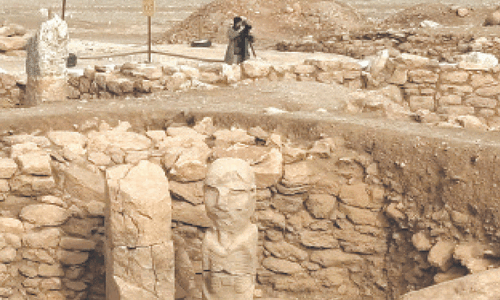CAIRO: For decades, the Muslim Brotherhood was forced to operate in Egypt’s shadows. Now its leaders, closely allied with President Mohammed Morsi, are quickly finding that opposition tactics don’t always work when they are in charge.
In the most recent episode, the Brotherhood’s calls last week for demonstrations against the anti-Islam YouTube video drew an unhappy phone call from US President Barack Obama and led to a halt in aid negotiations crucial to the Egyptian economy.
Top Brotherhood officials say they are maturing as they grow into their new role as Egypt’s dominant political power under Morsi, a former head of the group’s political wing. But they say they also find themselves caught between the moderating force of office and a sharp tug toward religious and social conservatism from Islamist groups that sparked the protests at the US embassy here.
A top Morsi adviser, Essam el Erian, said this week that the newness of democracy in Egypt has compounded the challenges the group faces in a country ruled by autocratic military leaders since the toppling of the monarchy in 1952.
“In any democratic country, you have a rotation of power,” said Erian, the interim chairman of the brotherhood’s political wing. But in Egypt, he said, those who are now politicians have spent 60 years in the opposition.
Failure to find the right balance could lead to a split between moderate and conservative forces in a nation of 83 million whose long-term success is critical to the Arab world, officials and analysts say.
“It’s going to be very difficult to find a way forward and keep it all together,” said Elijah Zarwan, a Cairo-based expert on Egyptian politics at the European Council on Foreign Relations. Morsi “is really walking a very delicate tightrope”.
The Muslim Brotherhood, a moderate Islamist group, has said that it wants an expanded role for religion in Egyptian life, but has tried to be inclusive in the 19 months since massive protests forced Mubarak to step down after decades in power. The movement was founded in 1928 and was banned and repressed almost continuously until Mubarak’s departure, drawing popular support by providing social services to some of Egyptian society’s most vulnerable in a country with sharp divides between rich and poor. The revolution transformed the Brotherhood’s status overnight. Leaders, some of whom had been imprisoned for years, suddenly became the heads of the biggest, best-organised civil organisation in the country. They have slowly ramped up their engagement in political life, first capturing nearly half the seats in parliament and then winning the presidency after first saying they would limit their parliamentary presence and skip the presidency altogether. Now leaders say they would contest every single parliamentary seat if elections are held again. “The people are in a hurry for democracy,” Erian said.
Morsi further strengthened his control over the country last month when he dismissed some of the military’s top leaders, enshrining civilian control over an army that has long dominated Egyptian political life. In a move toward inclusiveness, he appointed a cabinet comprising mainly technocrats, with a few Muslim Brotherhood affiliates in key positions. L EARNING FAST: But with leadership comes new responsibilities, and the Brotherhood has been evolving quickly, sometimes day by day. Last week, it was the ultraconservative Salafist Nour Party, a rival to the Brotherhood, that took the lead in calling for protests against the anti-Islam video. The demonstrations at the fortress-like US Embassy helped to spark a week of anger toward US targets across the region — and it also put pressure on Morsi and his circle. “T hey were basically forced to choose between the Islamists and the United States,” said Michele Dunne, a former Middle East specialist at the National Security Council who is now at the Atlantic Council. “Their initial response was to try to outflank the Salafis to show that they, the Brotherhood, were the real defenders of Islam.” A fter protesters stormed the embassy on Sept 11, breaching the compound and pulling down and destroying an American flag, Morsi waited 24 hours, then posted a mild condemnation on Facebook. The political wing of the Muslim Brotherhood, meanwhile, called for more demonstrations against the YouTube video.
By arrangement with Washington Post-Bloomberg News Service
































